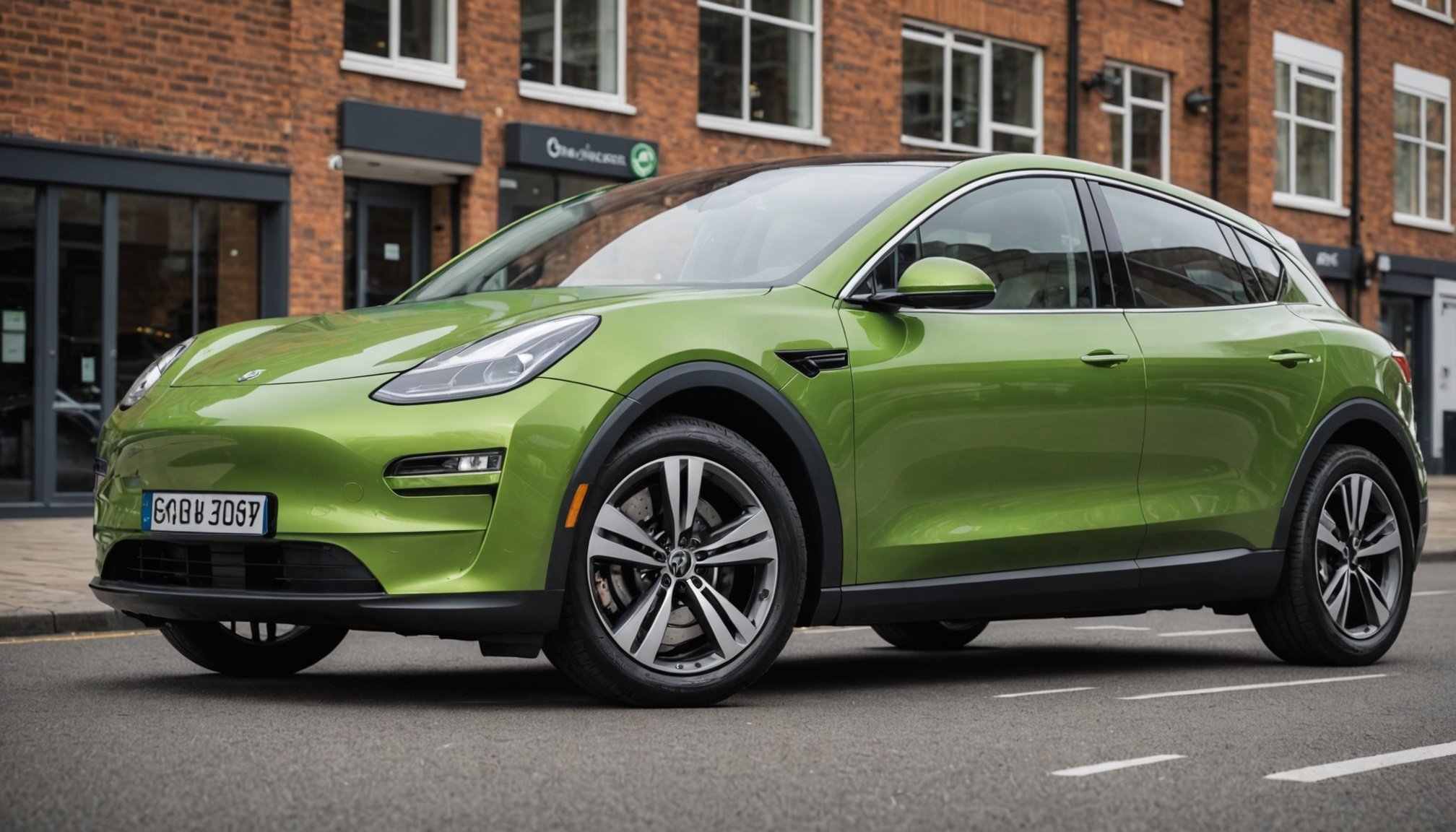Uncovering Eco-Conscious Tire Solutions for Electric Vehicles in the UK: Innovative Sustainable Picks Revealed!
As the world shifts towards a more sustainable future, the automotive industry is undergoing a significant transformation, particularly in the realm of electric vehicles (EVs). One often overlooked but crucial aspect of this transition is the development of eco-friendly tires. In this article, we will delve into the innovative sustainable tire solutions designed specifically for electric vehicles in the UK, highlighting the latest technologies, environmental benefits, and what this means for the future of transportation.
The Need for Sustainable Tires in the Electric Vehicle Era
Electric vehicles are gaining popularity due to their zero-emission status and efficient energy use. However, the tires on these vehicles play a critical role in their overall performance, energy efficiency, and environmental impact. Traditional tires, made primarily from synthetic rubber and carbon black derived from fossil fuels, contribute to the carbon footprint of EVs.
Topic to read : Ultimate guide to selecting the ideal oil for your british electric vehicle: expert tips and insights
“Materials are very important to reduce the footprint of our tires, but [they only account for] 10 to 15% of the impact of the tire during the entire life cycle,” notes Roget, emphasizing the broader impact of tire usage on the environment[1].
To address this, tire manufacturers are now focusing on using renewable and recycled materials. For instance, natural rubbers from sources like rubber trees, guayule shrubs, and Russian dandelions are being explored. Synthetic rubbers from bio-based sources are also gaining traction[1].
Also to discover : Ultimate diy guide: installing a remote start system in your british made car
Innovative Materials and Technologies
The shift towards sustainable tires involves several innovative materials and technologies:
Renewable and Recycled Materials
- Natural Rubbers: Companies are sourcing natural rubber from sustainable plantations to reduce deforestation and improve the sustainability of rubber production. Initiatives like the Global Platform for Sustainable Natural Rubber are driving these efforts[1].
- Bio-Based Synthetic Rubbers: These rubbers are derived from renewable sources such as soybean oil and algae oil, offering a more eco-friendly alternative to traditional synthetic rubbers[1].
Recycling and Upcycling
- Pyrolysis: This thermal decomposition process is used to reclaim carbon black from end-of-life tires. While currently only less than 1% of carbon black is reclaimed, new technologies aim to increase this significantly[1].
- Enzymatic Recycling: Michelin, in collaboration with Carbios, is using enzymes to break down PET from waste plastic bottles into monomers that can be reconstituted into virgin PET. This technology has already been successfully used in demonstration tires[1].
EV-Specific Tires: Design and Benefits
Electric vehicles have distinct requirements due to their unique design, including the added weight of batteries and the instant torque that can accelerate tire wear. Here are some key features and benefits of EV-specific tires:
Key Features
- Reinforced Sidewalls: To support the higher loads of EV batteries.
- Optimised Tread Designs: For reduced rolling resistance and improved energy efficiency.
- Low Noise and Low Rolling Resistance: To enhance the driving experience and extend battery range[2].
Examples of EV-Specific Tires
- Michelin Pilot Sport EV: Designed for electric sports vehicles, this tire combines exceptional performance with eco-friendly innovation. It features Michelin’s ElectricGrip Compound™ for consistent performance and high stiffness at the center for efficient torque transmission[3].
- Hankook iON Range: Hankook’s iON brand offers a range of EV-specific tires, including the iON evo, iON i*cept, and iON FlexClimate. These tires are designed to provide an optimal balance of low noise, low rolling resistance, and improved mileage[5].
Regulatory and Market Drivers
The push towards sustainable tires is not just driven by technological advancements but also by regulatory and market forces.
EU Ecodesign for Sustainable Products Regulation
- This regulation, which came into force in July 2024, sets eco-design and sustainability requirements for various products, including tires. It is expected to drive the market towards greener practices by setting strict environmental standards[1].
Consumer Demand
- Increasing consumer awareness and demand for sustainable products are driving tire manufacturers to adopt more eco-friendly practices. Stricter environmental regulations and consumer pressure are pushing the industry to innovate and reduce its environmental impact[1].
Practical Insights and Actionable Advice
For those considering the switch to electric vehicles or looking to upgrade their current tires, here are some practical insights and actionable advice:
Choosing the Right Tires
- Look for Sustainable Materials: Opt for tires made from renewable and recycled materials. Check the manufacturer’s commitment to sustainability and the use of eco-friendly technologies.
- Consider EV-Specific Tires: If you own an electric vehicle, choose tires specifically designed for EVs. These tires are engineered to handle the unique demands of electric vehicles, ensuring better performance, efficiency, and longevity[2][3].
Maintenance and Recycling
- Regular Maintenance: Proper tire maintenance can significantly extend the life of your tires and improve their efficiency. Regularly check tire pressure, rotate your tires, and ensure proper alignment.
- Recycling Options: When your tires reach the end of their life, look for recycling options. Many manufacturers are now offering recycling programs that can convert old tires into valuable materials for new tires[1].
Comparative Analysis of Sustainable Tires
Here is a comparative table highlighting some of the key sustainable tires available in the market:
| Tire Model | Manufacturer | Key Features | Sustainable Materials | Energy Efficiency |
|---|---|---|---|---|
| Michelin Pilot Sport EV | Michelin | ElectricGrip Compound™, Reinforced Sidewalls, Low Noise | Recycled PET, Bio-Based Synthetic Rubbers | High |
| Hankook iON evo | Hankook | Low Rolling Resistance, Optimised Tread Design, Low Noise | Natural Rubber, Recycled Materials | High |
| Continental UltraContact NXT | Continental | ContiRe.Tex Technology, Recycled PET from Waste Bottles | Recycled PET, Natural Rubber | Medium-High |
| Pirelli Cinturato P7 | Pirelli | Plant-Based Oils, Low Rolling Resistance | Bio-Based Synthetic Rubbers, Natural Rubber | Medium-High |
The journey towards 100% sustainable tires by 2050 is ambitious but necessary. With the integration of renewable and recycled materials, innovative recycling technologies, and EV-specific tire designs, the tire industry is making significant strides.
“We expect tires to be amongst the first group of products which will be looked at [using the EU Ecodesign for Sustainable Products Regulation] to start to set eco design and sustainability requirements,” says McCarthy, highlighting the regulatory push towards sustainability[1].
As consumers, we have the power to drive this change by demanding more sustainable products and supporting manufacturers that prioritize environmental responsibility. The future of transportation is not just about electric vehicles but also about the sustainable tires that will carry them forward.
In the words of Roget, “The usage part, when the tyre is on the vehicle, is where 80% of the impact happens.” By focusing on sustainable tires, we can significantly reduce the environmental impact of our vehicles and pave the way for a greener, more sustainable world[1].









